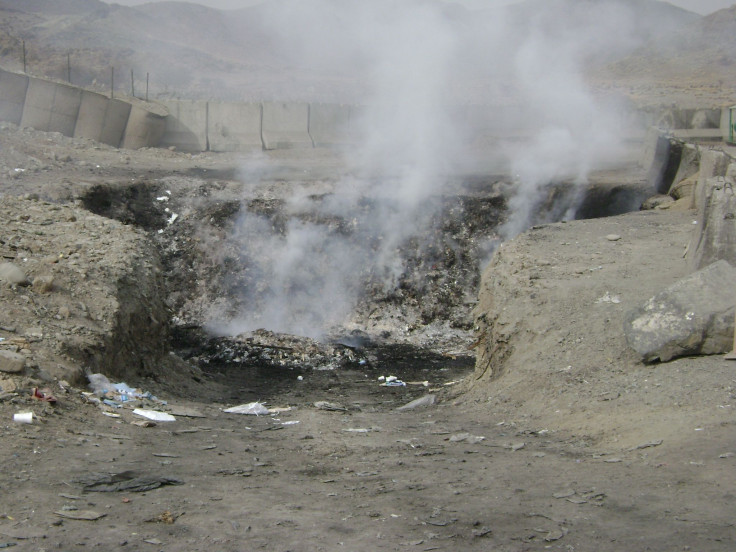War Veterans Fighting For Lung Disability Compensation After Toxic Exposures

As more veterans complain of lung problems, the Pentagon is reviewing medical policy to determine whether they should require mandatory lung testing during baseline medical evaluations.
Following two long wars, thousands of veterans now say they’ve been exposed to hazardous dust and smoke, including burn pits in Afghanistan used to dispose of refuse. Yet, the U.S. Department of Defense has hesitated to require the baseline measurement for troops joining the services or deploying to a war zone.
According to the Pentagon, such medical evaluations would cost $254 million to implement for the 2.3 million members of the U.S. Armed Services. Moreover, some military physicians question whether such testing would even provide value.
"In general, there is no evidence to say that baseline testing will inform our response" to a soldier who is having lung problems, Paul Ciminera, director of post-deployment health at the Veterans Health Administration, told FOX News.
However, some veterans say otherwise. Staff Sgt. Moses Scarberry, a 30-year-old military policeman with the West Virginia Army National Guard, says that although the U.S. Veterans Administration will provide some disability compensation following sub-par lung test results, he cannot prove the level of deterioration to his lungs without a baseline evaluation. In making his case for greater compensation, he lacks a “before-and-after” comparison.
Anecdotally, he knows the difference has been dramatic. Whereas he once easily trotted 7-minute miles as a high-school football player in 2001, he now lacks the ability to run even a mile without stopping for breath. Scarberry has also been diagnosed with constrictive bronchiolitis, an ailment known to affect those exposed to toxic chemicals without protective equipment.
Outside the of the military, fire departments and other employers require baseline lung testing for occupations known to carry a risk to pulmonary functioning. But military service also carries a risk to lung health, according to Fox News and investigative journalist Katie Drummond, whose “Ring of Fire” report describes toxic exposures endured by some troops who have served overseas.
“Thousands of [war veterans] are complaining of breathing problems, gastrointestinal disorders, and even rare cancers,” she wrote. “Some have already died of these ailments. A handful of experts are now concerned that today’s veterans face an emerging epidemic, one threatening the lives of thousands of men and women.”
Nearly two million service members have cycled through the Iraq and Afghanistan war theaters since 2001, with approximately 14 percent of them afterward complaining of lung problems, according to research published last year in the Journal of Occupational and Environmental Medicine.
Congress has ordered the Pentagon to establish an online registry to allow veterans to report burn pit exposure, and to document any associated health problems.



























